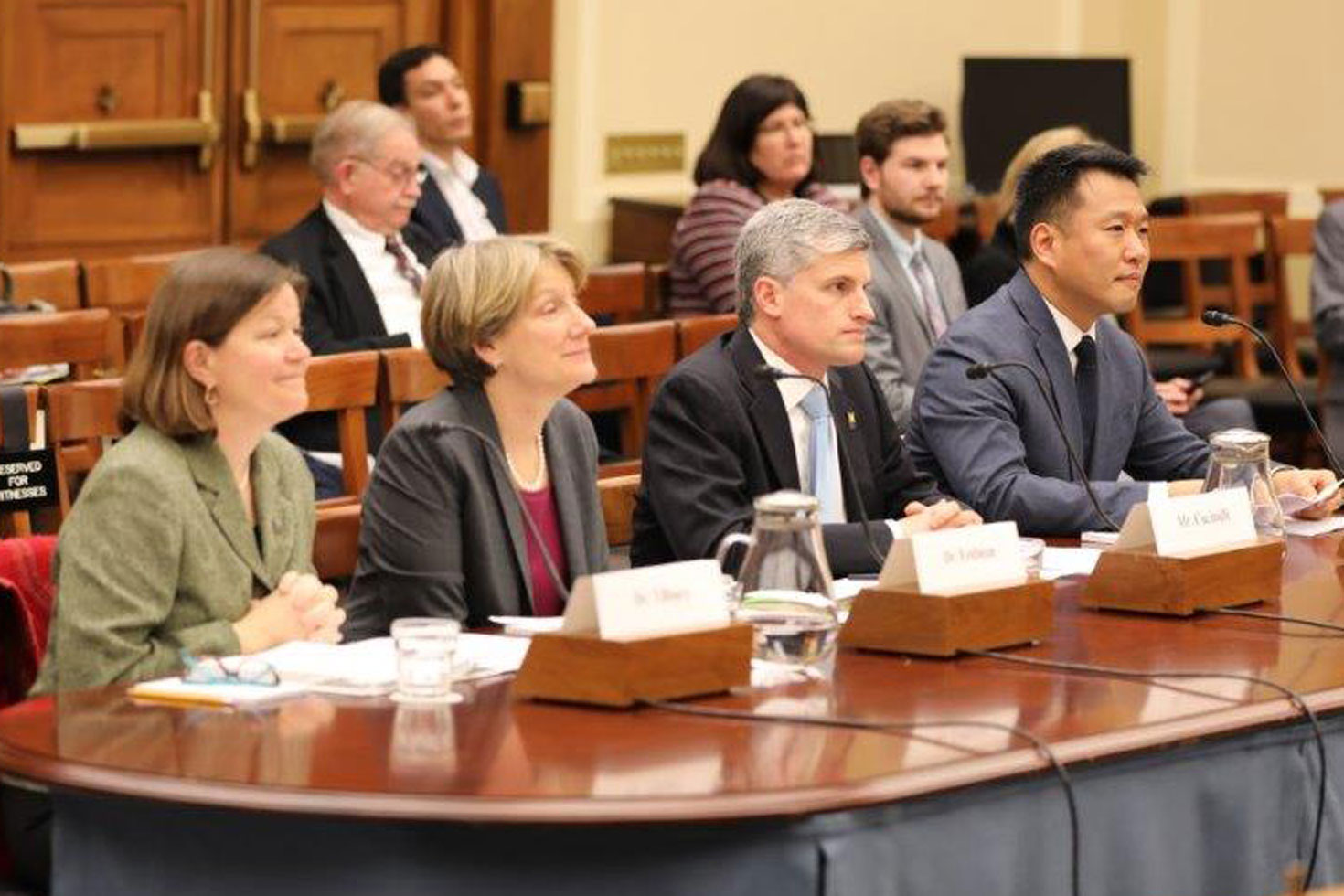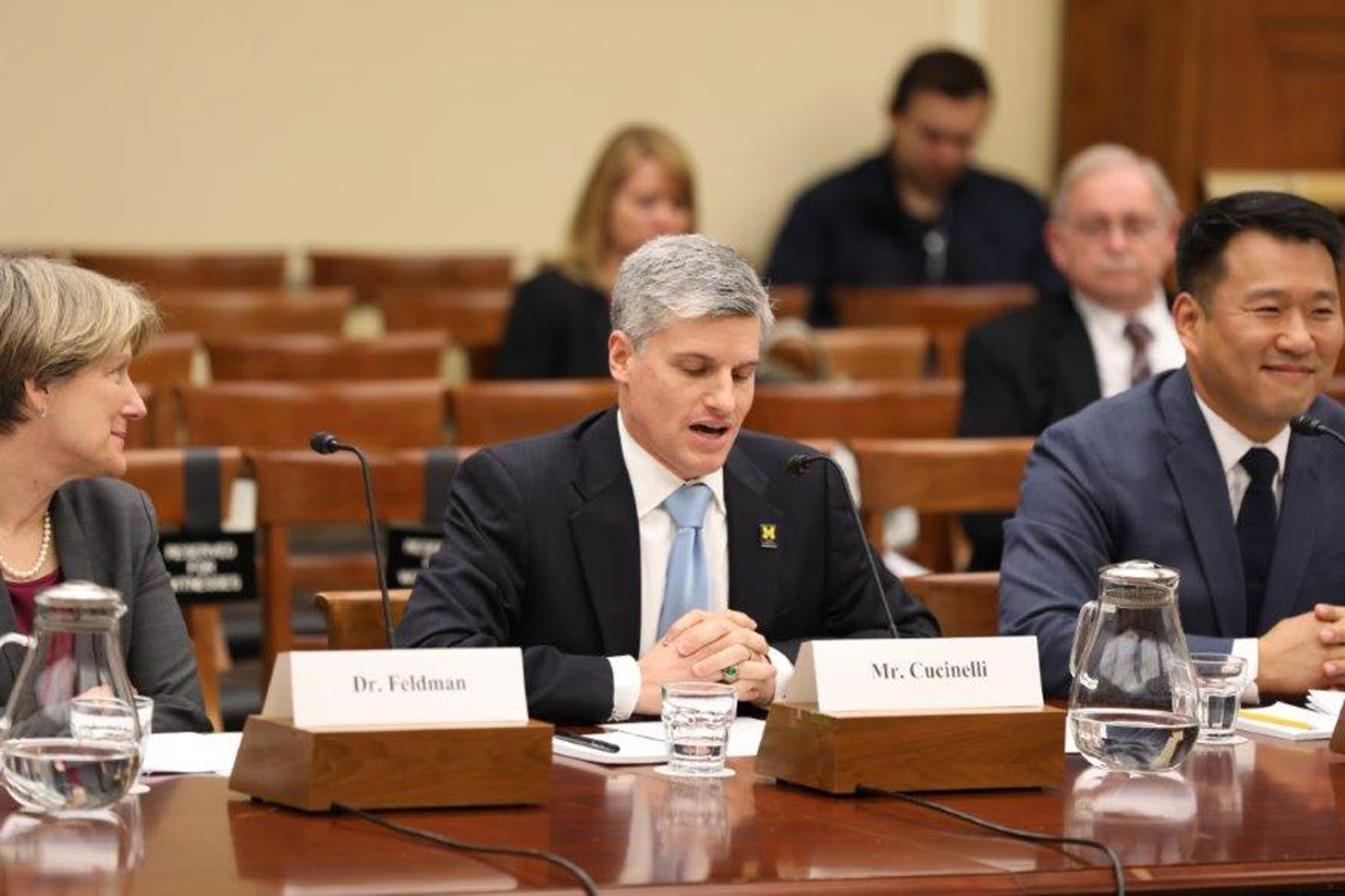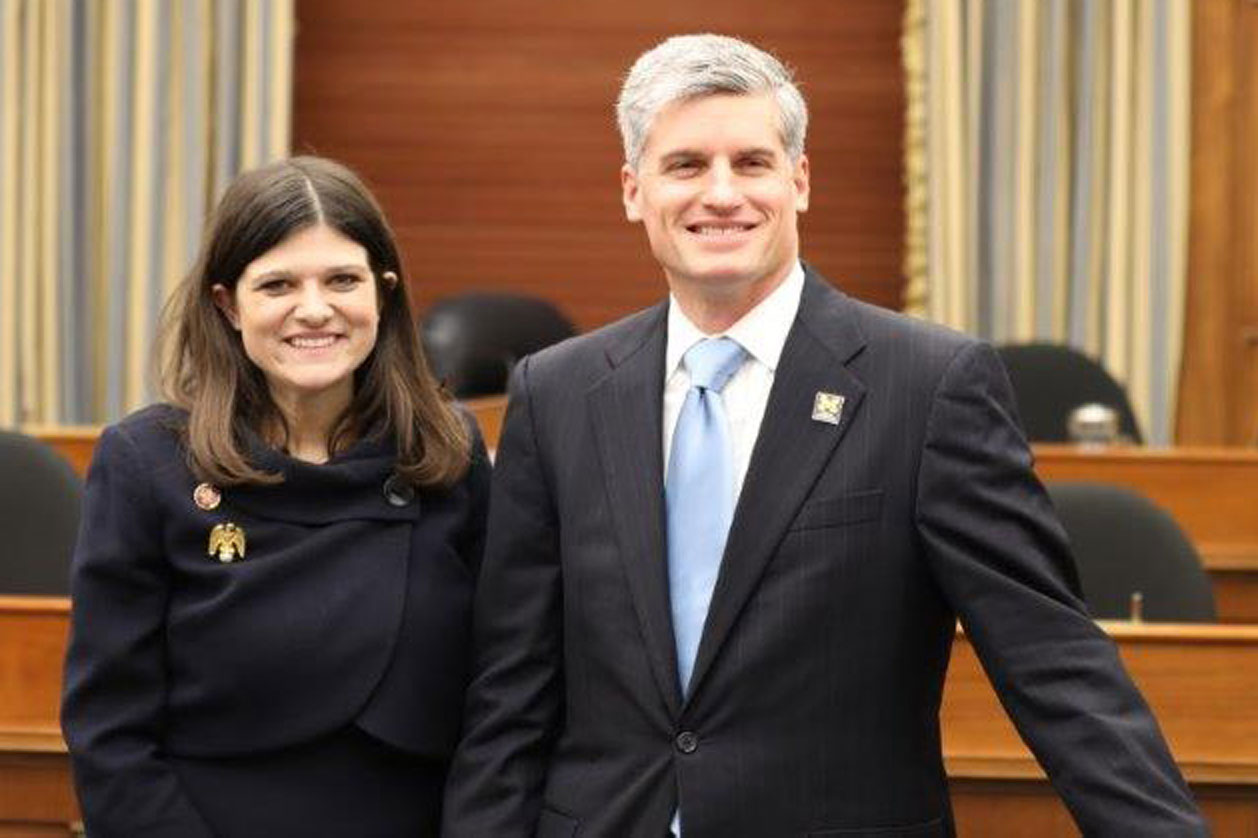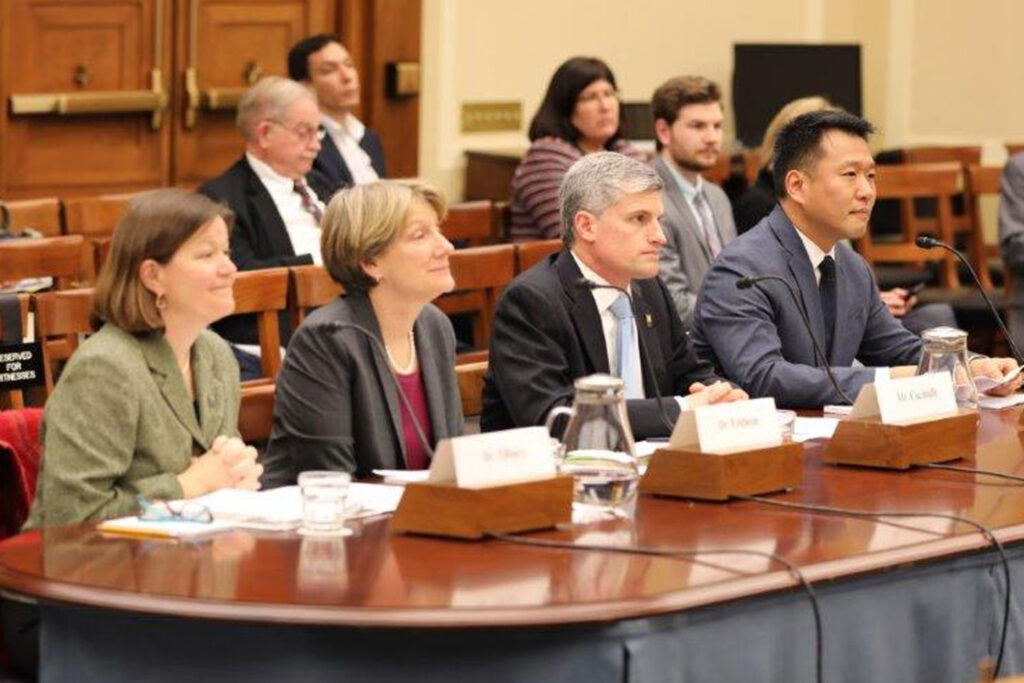
As a subcommittee of the U.S. House of Representatives Committee on Science, Space and Technology, chaired by Michigan Representative Haley Stevens, the panel was fortunate to showcase two University of Michigan faculty members, Dr. Dawn Tilbury from U-M ME and EECS (currently has an appointment as the Assistant Director for Engineering at the NSF), and Nicholas Cucinelli from the CFE. The two were joined by Dr. Maryann Feldman from the University of North Carolina at Chapel Hill and Dr. Johnny Park, CEO at Wabash Heartland Innovation Network.

“The SBIR and STTR programs have helped entrepreneurs in Michigan pursue their big ideas and contribute to our thriving innovation economy,” said Stevens. “Since the creation of these programs, small businesses in Michigan have leveraged $1.2 billion in funds to develop an amazing array of new technologies while creating jobs and driving economic growth in our region.”
“Economic growth over the next two decades will be dominated by the currently emerging engineering technologies (AI, robotics, remote sensing, data analytics),” said CFE Executive Director, Dr. Jonathan Fay. “The U.S. is the clear world leader in research in these areas and we also want to be the world leader in capturing the value from these fundamental technologies.”
In 1977 the National Science Foundation (NSF) began a pilot program that became the “Small
Business Innovation Research” (SBIR) program. Through this program, research proposals were sought by profit-seeking small firms. Then in 1982, Congress established the SBIR program to provide increased opportunities for small businesses.
Dr. Tilbury also said the NSF Innovation Corps (I-Corps) program helps entrepreneurs and small businesses understand market needs and opportunities, thus increasing their chances of successfully translating new technologies. “I-Corps was designed to foster entrepreneurship that will lead to the commercialization of basic research.”
“Programs like NSF I-Corps and SBIR/STTR are critical building blocks to turning our research discoveries into tomorrow’s economy,” said Dr. Fay.

Cucinelli added that, “Federal funding to university labs produces a great deal of technological innovation, but it also produces talent in the form of brilliant undergrad and graduate students who go on to become outstanding inventors and entrepreneurs across multiple ventures.”
Examples of these students-turned-entrepreneurs cited by Cucinelli included companies such as H3D and SkySpecs.
“SkySpecs is similar to H3D in that the act of executing the Phase I SBIR scope of work still led to innovations which benefited the company’s entire technology platform,” said Cucinelli. He explained that for both companies it helped them develop the organizational discipline required to execute the technical scope of work of the SBIR.
“To increase the number of hardtech SBIR/STTR success stories like those I have highlighted above, all agencies should increase engagement with the university engineering and biomedical programs training the next generation of PhD scientists and engineers for entrepreneurial careers. Programs like the Center for Entrepreneurship in the U-M College of Engineering, where I teach entrepreneurial leadership, have a key role to play in instilling an entrepreneurial mindset in our tech communities.”
Stevens added, “SBIR has long been an important program in our Federal R&D portfolio. It helps the agencies (NSF, DOE, and NASA) achieve their missions and it supports innovative entrepreneurs.”
Cucinelli summarized his thoughts on the programs as, “The very best universities and national labs are only as good as the innovations they deliver and the real-world problems they solve for humanity, and the most impactful innovations sometimes require the most patience, talent, and investment.”

